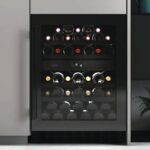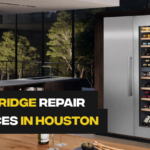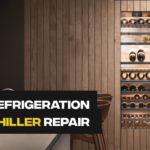Viking Wine Cooler Compressor Failure
Post Date: June 20, 2024

Your Viking wine cooler’s compressor plays a vital role in maintaining the optimal temperature for your precious wine collection. However, if you notice your cooler failing to cool effectively or making unusual noises, it could be a sign of compressor failure. Understanding the causes, implementing DIY solutions, and taking preventive steps can help you address this issue promptly and protect your investment.
Causes of Compressor Failure
Compressor failure in a Viking wine cooler can stem from various factors:
1. Overheating:
Excessive heat buildup can cause the compressor to overwork and eventually fail.
2. Electrical Issues:
Voltage fluctuations or electrical surges can damage the compressor components, leading to failure.
3. Wear and Tear:
Like any mechanical component, the compressor undergoes wear and tear over time, reducing its efficiency and lifespan.
4. Lack of Maintenance:
Neglecting regular maintenance, such as cleaning the coils or ensuring proper ventilation, can contribute to compressor failure.
DIY Solutions:
Before attempting any DIY repairs, it’s crucial to prioritize safety. Start by unplugging the cooler and allowing it to sit for a while to discharge any stored electricity. This precautionary step reduces the risk of electric shock during the repair process. Dust and debris buildup on the condenser coils can significantly impact airflow, leading to compressor overheating. To address this issue, use a soft brush or a vacuum cleaner with a brush attachment to gently remove any accumulated dirt or debris. Ensure thorough cleaning to restore optimal airflow and prevent compressor strain. Inspect the compressor and refrigerant lines carefully for any signs of leakage, such as oily residue or frost buildup. Even small leaks can result in compressor inefficiency and failure over time. If you detect a leak, it’s essential to consult a professional for repair, as handling refrigerants requires specialized knowledge and equipment. The start relay plays a crucial role in initiating the compressor’s operation. If the relay is faulty, it can prevent the compressor from starting or cause intermittent operation. To test the relay, use a multimeter to measure its continuity. If the relay fails the continuity test, it indicates a malfunction and should be replaced promptly to restore proper compressor function. A faulty capacitor can also hinder the compressor’s operation, resulting in inefficiency or failure. To assess the capacitor’s condition, use a multimeter to measure its capacitance. If the capacitor shows signs of being defective, such as swollen or leaking electrolyte, it should be replaced with a new one to ensure reliable compressor performance. Proper airflow around the wine cooler is essential for optimal compressor function and longevity. To achieve this, maintain adequate clearance between the cooler and surrounding objects to allow unrestricted airflow. Additionally, avoid placing the cooler in direct sunlight or near heat sources, as excessive heat can strain the compressor and impair its efficiency. By ensuring proper ventilation, you can help prolong the lifespan of your Viking wine cooler’s compressor and enhance overall performance.
Preventive Steps
Schedule Regular Maintenance:
Implement a routine maintenance schedule to clean the coils, check for leaks, and ensure proper ventilation. This can extend the life of your compressor and prevent future failures.
Invest in Surge Protection:
Install surge protectors or voltage regulators to safeguard your Viking wine cooler from electrical fluctuations and surges.
Monitor Temperature Settings:
Avoid setting the cooler’s temperature too low, as this can cause the compressor to overwork. Optimal temperature settings can prolong the compressor’s lifespan.
Dealing with compressor failure in your Viking wine cooler can be daunting, but with the right knowledge and proactive approach, you can mitigate the issue and ensure your wine collection remains safe. By understanding the causes, implementing DIY solutions, and taking preventive steps, you can address compressor failure effectively and prolong the lifespan of your cooler. Remember to prioritize safety and consult a professional if you encounter any complex issues.








